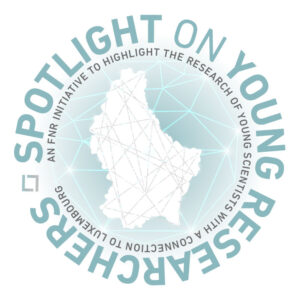BACK TO RESEARCH WITH IMPACT: FNR HIGHLIGHTS
BACK TO RESEARCH WITH IMPACT: FNR HIGHLIGHTS
Is it possible to use mathematical indicators to alert about natural disasters and help in the early detection of disease and health issues? Over the past 15 years, scientists have been working on bridging mathematical theory and empirical evidence to do just that. To move the science forward, a key challenge is the underlying mathematical problem, as well as determining how the indicators should be applied.

Ecosystem collapses and earthquakes are examples of what happens when some natural systems suddenly become unstable and start functioning differently. In biological systems, scientists believe that epileptic seizures, or the evolution of certain cancer types, could potentially be described by similar mathematical laws. Only few sudden catastrophes can be alerted for in advance – the others happen without prior warnings. A precise risk assessment system is therefore crucial for many fields and applications.
An interdisciplinary approach is vital
“Over the past 15 years, scientists have tried to propose a set of mathematical indicators for early detection and alert. They were developed from mathematical and physical theories and were tested on models from different fields – climate, epidemiology, ecology, etc.” explains Daniele Proverbio, physicist of complex systems.
“The interdisciplinary effort has been noteworthy: as long as an observed characteristic is called x, we can interpret it as rain concentration, viral density or population dimension, and carry out subsequent analysis. Thanks to that, several indicators have been proposed and tested in various settings and case studies.”
One size fits all, or custom?
Despite this great interdisciplinary effort, there is still debate about how reliable such indicators are and to which confidence they can be used for risk assessment. It is also not clear if they can be generically applied to a range of cases, or if they should be tailored to each case. ‘Is something that could work for a certain ecosystem valid for others?’ ‘Which mathematical characteristics shall we consider first to classify different systems together?’ are some of the questions not yet answered.
“The underlying mathematical problem is intrinsically challenging. Despite the great efforts, these problems are known to be hard to crack since the development of statistical mechanics in the early ‘900. Applying them onto complex systems like climate or biology makes them even harder, as few validated models are available and controlled experiments are difficult or impossible – think of the climate: we just do not have a spare Earth.”
Daniele’s research focuses on linking theoretical mathematical results and empirical evidence. The researcher has carried out extensive systematic analysis on the capabilities of the proposed early warning signals and has tested them against real-world data, primarily from the recent COVID-19 pandemic.
“This way, I could carefully assess strengths and limitations, to improve their interpretations and their use for realistic risk assessment systems.”
“So far, I have successfully predicted and interpreted the application of warning indicators for the monitoring of the COVID-19 pandemic and of cell development. Work is ongoing to check if the currently proposed indicators can be further improved.”
Daniele Proverbio is in the final stages of his PhD at the Luxembourg Centre for Systems Biomedicine (LCSB) at the University of Luxembourg. His PhD is part of the Doctoral Training Unit (DTU) CriTiCS, supported by the FNR’s PRIDE programme.


MORE ABOUT DANIELE PROVERBIO
On his research, in one sentence
“I am developing and debunking fortune-telling.”
On the importance of interdisciplinarity in science
“I strongly believe that interdisciplinarity is crucial to better understand complex systems. The interplay between mathematical modelling and experimental expertise is what drives me most. While I was looking for a PhD, the LCSB was one of the few institutions to open such a position, and I immediately applied for that.”
On what he loves about science
“I love the possibility to drill complex problems for knowledge’s sake, before striving for a gain. The intellectual challenge of uncovering new mechanisms is addicting. If such knowledge discoveries can then be applied to help other people, that’s the cherry on top of the cake.”
On mentors with an impact
“The first person to acknowledge is my supervisor, who granted me intellectual freedom and trust. I wouldn’t be able to explore to this extent otherwise. Many colleagues – professors and postdocs foremost – constantly stimulated me with new challenges. In addition, I am grateful to the former LCSB director, prof. Rudi Balling, for developing such an interdisciplinary and vibrant environment.”
You can also read about Daniele Proverbio in the Research Luxembourg series ‘In conversation with our young researchers’. Daniele also featured in the FNR video ‘Look closer’, which can be viewed below, and won the “Research is everywhere” 2021 science writing competition.
About Spotlight on Young Researchers
Spotlight on Young Researchers is an annual FNR campaign where we shine a Spotlight on early-career researchers across the world with a connection to Luxembourg. Over 100 features have been published since the first edition in 2016.
Browse them below!


